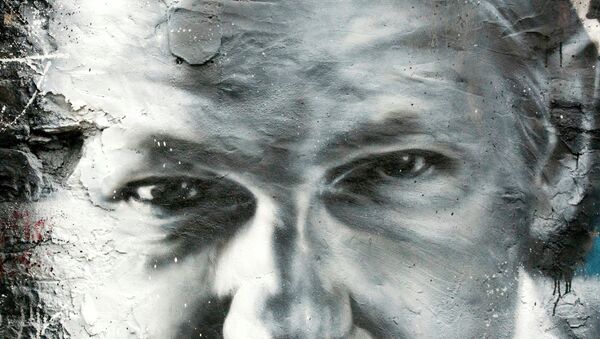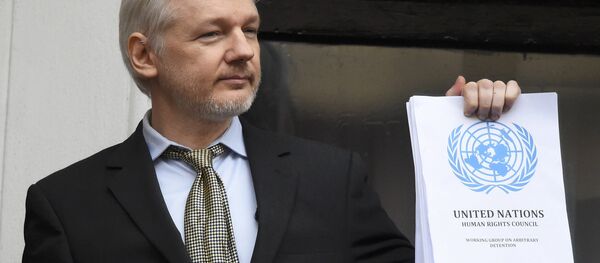Cameron was addressing MPs in the House of Commons on Wednesday when asked about UN's panel decision last week, which ruled that Assange's stay in the Ecuadorian embassy amounted to "arbitrary detention."
3 false claims from the UK & Swedish governments about the #Assange UN ruling https://t.co/Mb6gXlz7QS pic.twitter.com/zQtykqQHr7
— WikiLeaks (@wikileaks) February 9, 2016
"What he should do is come out of that embassy and face the arrest warrant that is against him," Cameron told MPs. "He is being asked to stand trial in Sweden, a country with a fair reputation for justice and he should bring to an end this whole sorry saga."
The prime minister slammed the UN panel's decision as "ridiculous" and called on the 44-year-old to bring an end to the ordeal.
"I think this was a ridiculous decision. You've got a man here with an outstanding allegation of rape against him. He barricaded himself into the Ecuadorian embassy and yet claims he was arbitrarily detained. The only person who detained himself was himself."
WikiLeaks took to Twitter to hit back at Cameron's claims, saying that Assange "hasn't ever been charged" and is therefore, not currently "being asked to stand trial" as Cameron suggested.
Response to UK PM David Cameron attack on Assange. Assange is not 'wanted for trial' — he hasn't even been charged https://t.co/WK1xStGT3f
— WikiLeaks (@wikileaks) February 10, 2016
Legal Situation
The incident isn't the first time there has been confusion over the WikiLeaks founder's legal situation, with Assange last year stating that he was considering taking up legal action against then UK Deputy Prime Minister Nick Clegg, who during a radio interview claimed that the Australian had been "charged" with a crime.
Swedish prosecutors have issued a European arrest warrant for Assange over the rape allegations, which relate to an alleged incident in August 2010, when he was in Stockholm delivering a lecture.
In June 2012, after the UK Supreme Court upheld previous rulings that Assange should be extradited to Sweden for questioning over the allegations, the Australian entered London's Ecuadorian embassy and applied for asylum, which he was later granted.
Assange, Ecuadorian officials and Swedish prosecutors have so far failed to come to an agreement to question the 44-year-old in the embassy.
Assange has agreed to answer questions in London, but has refused to travel to Sweden to do so amid fears he may end up being seconded to the US over his role in the leaking of secret military cables via WikiLeaks.
At present he has not been formally charged with any offence, with Swedish officials issuing an extradition request so he may be questioned.
In Sweden, charging comes much later in the process of a criminal investigation than it does in many other countries.



